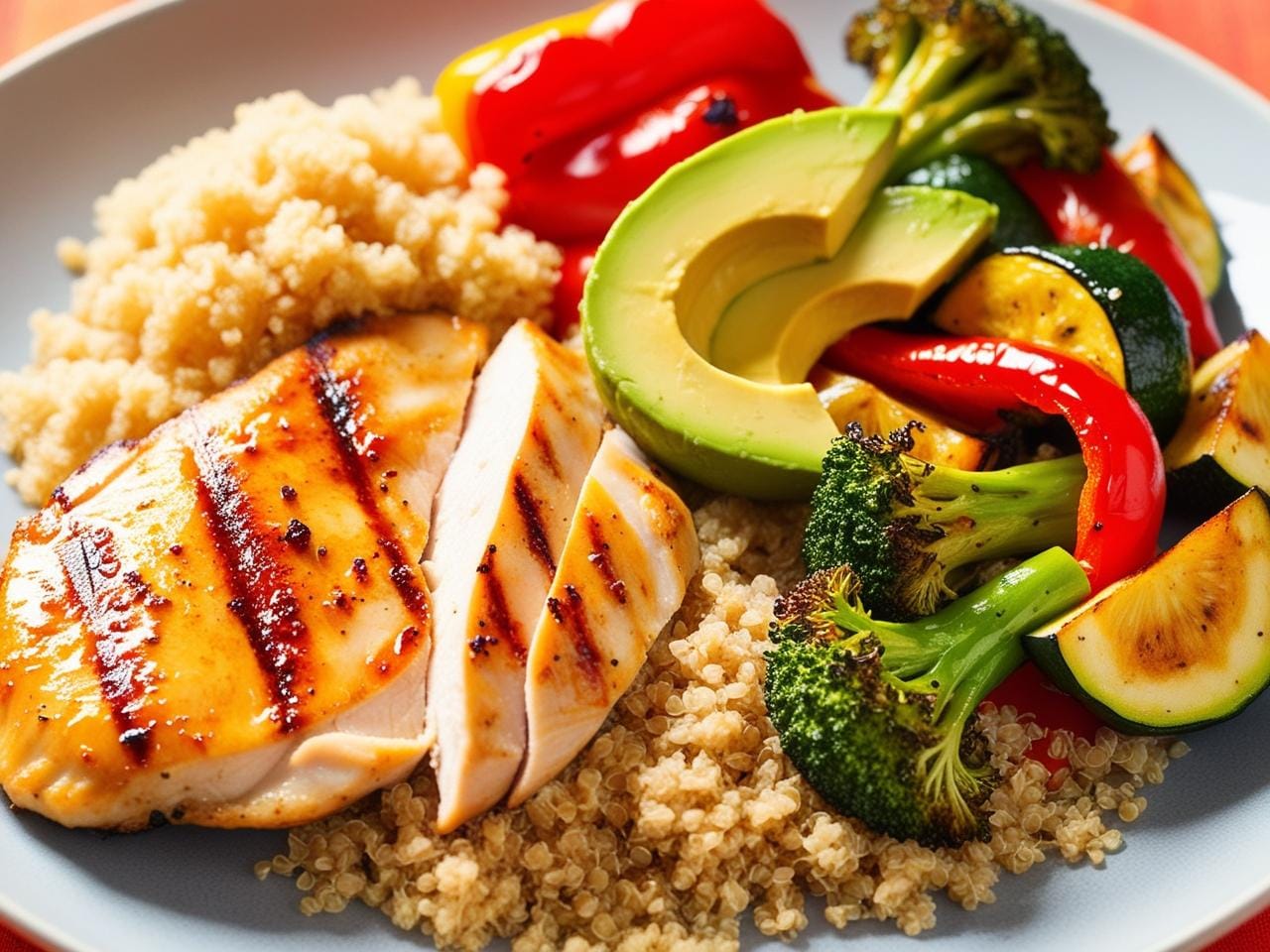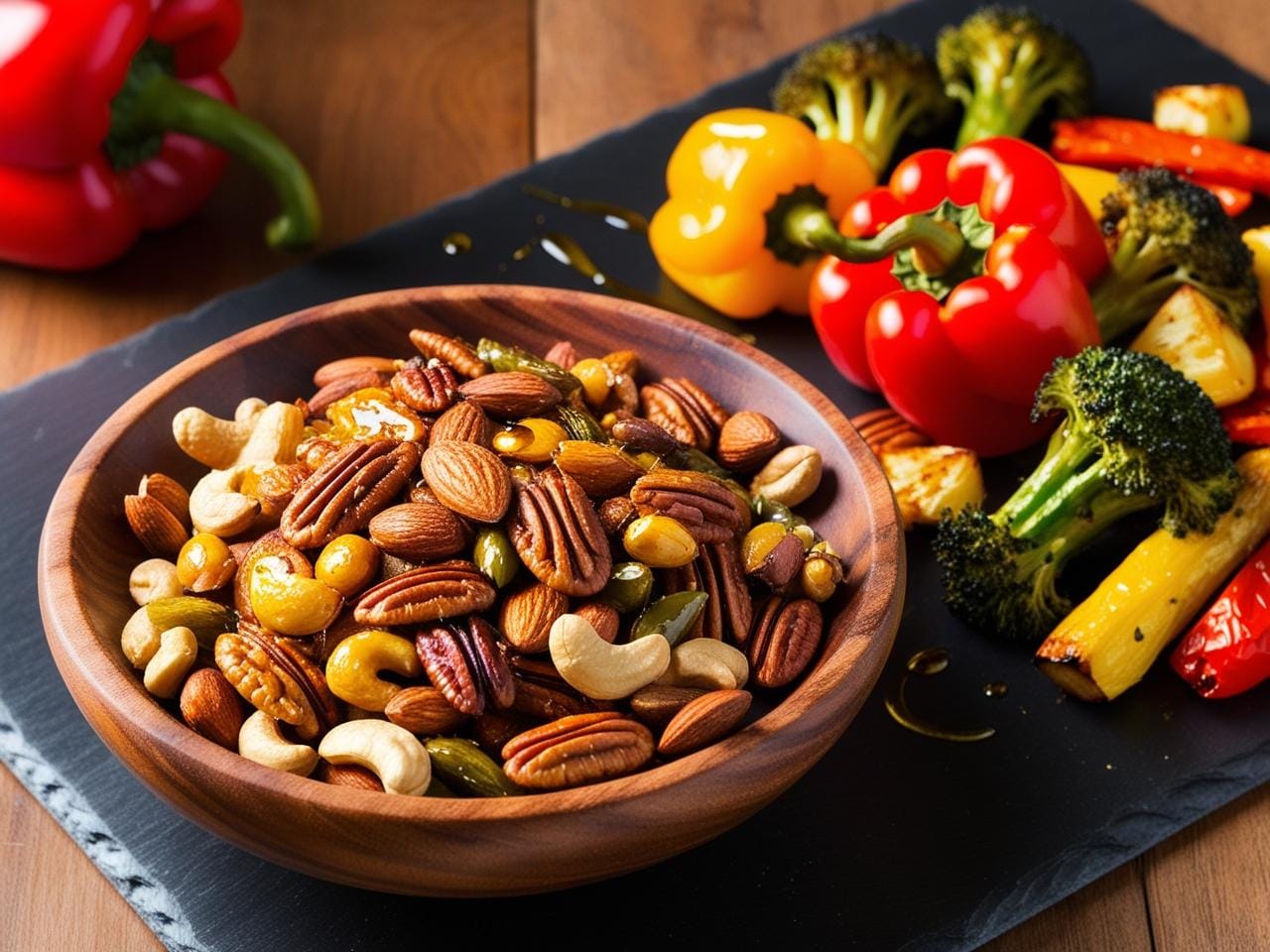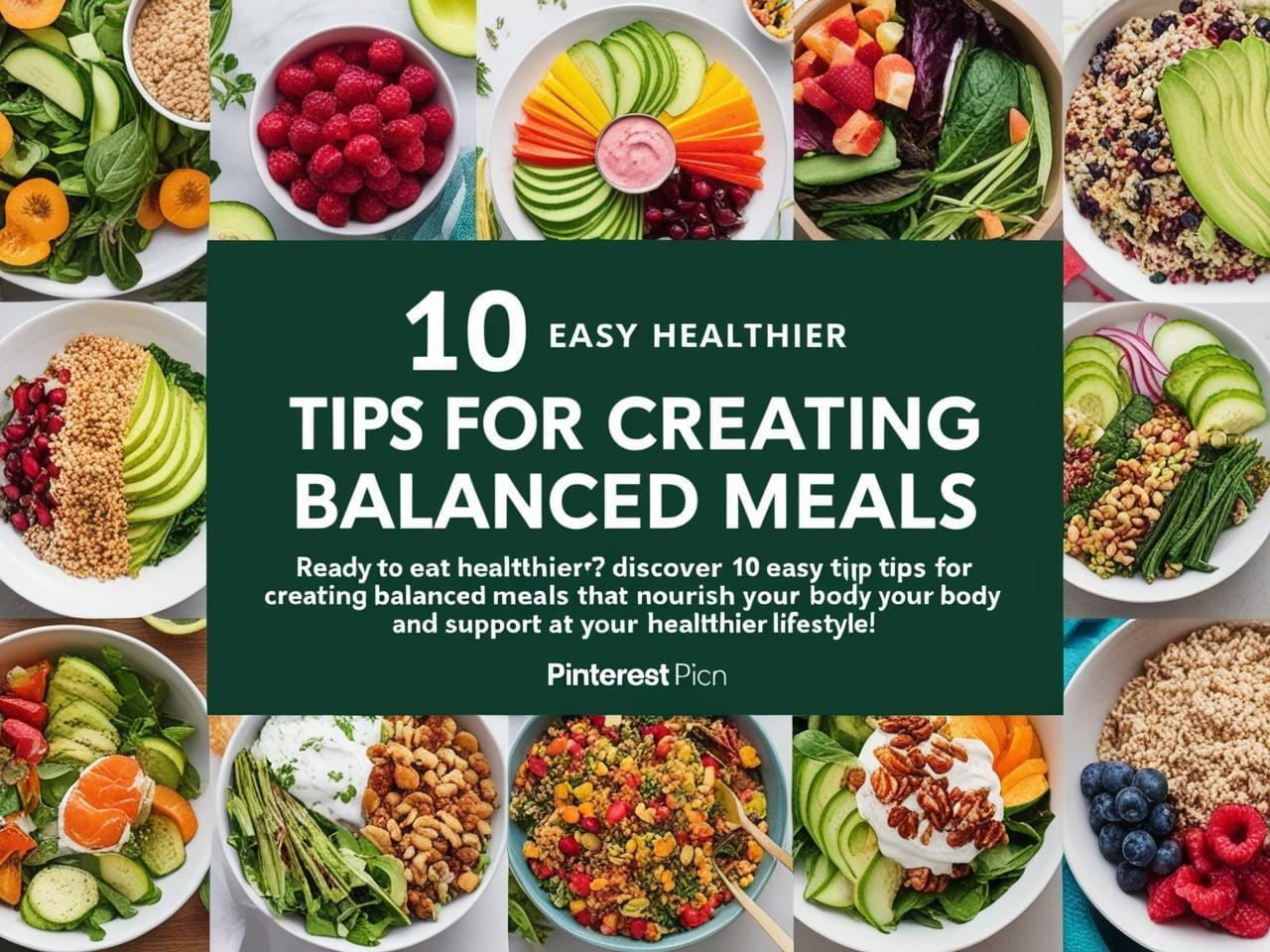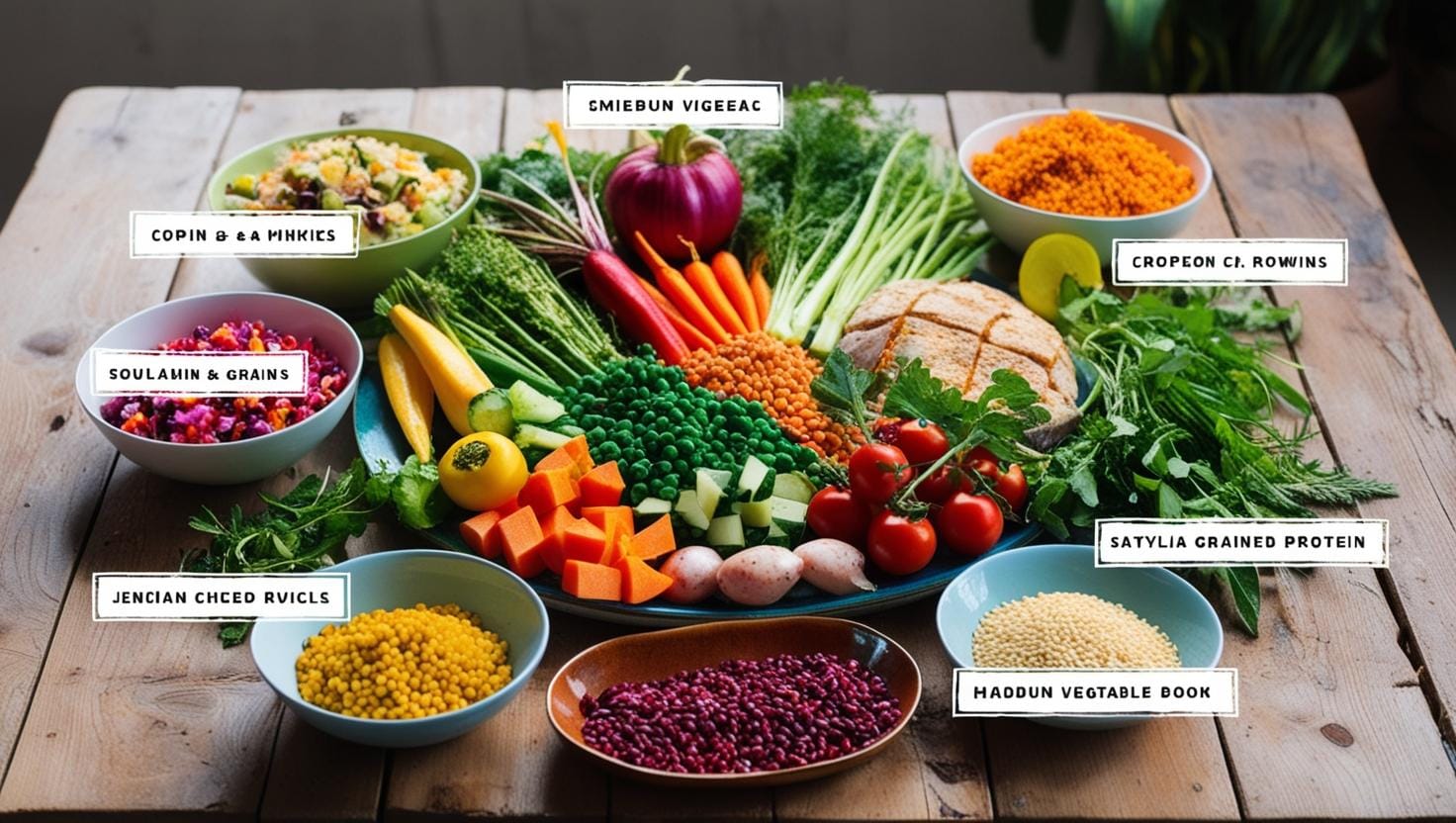How to Create Balanced Meals for a Healthier You: 10 Easy Tips to Boost Your Nutrition
Discover simple and actionable tips for creating balanced meals. Learn how to combine the right foods, boost your nutrition, and kickstart a healthier lifestyle!
Introduction:
Start by imagining how amazing it would feel to have more energy, improved focus, and better overall health. You don’t need to be a professional chef or nutritionist to make balanced meals – it’s all about simple choices that pack a nutritional punch. In this beginner’s guide, we’ll walk you through the essentials of creating balanced meals that nourish your body and mind. Let’s get started on your journey to a healthier, more vibrant you!
Balanced meals are not about restrictive dieting or following complicated recipes. They are about creating meals that fuel your body with the nutrients it needs for optimal performance. Whether you’re someone who is new to healthy eating or you’re just looking for ways to improve your meal choices, this guide will help you make small yet impactful changes. These tips will not only help you feel better but also enhance your mood, energy, and overall well-being.
1. Understand the Basic Food Groups
To create balanced meals, you need to know the basic food groups and how they work together. These are:
 A healthy, balanced meal combining protein, carbs, healthy fats, and fiber.
A healthy, balanced meal combining protein, carbs, healthy fats, and fiber.
Proteins: The building blocks of your body, like chicken, fish, beans, and tofu. Proteins help your body repair and build muscle.
Carbohydrates: Your body’s main energy source, found in grains, fruits, and vegetables. Choose whole grains for sustained energy throughout the day.
Fats: Healthy fats are essential for brain function and overall well-being, like avocados, nuts, and olive oil. These fats also help your body absorb important vitamins.
Vitamins & Minerals: Found in fruits and vegetables, these micronutrients help your body perform at its best.
Fiber: Vital for digestion and keeping you full, fiber is found in whole grains, vegetables, and fruits. It also helps regulate blood sugar levels.
2. Fill Half Your Plate with Vegetables
Filling half your plate with vegetables is an easy way to make your meal nutrient-dense without adding excess calories. Opt for a variety of colorful veggies to get a range of vitamins and minerals. Green leafy vegetables, peppers, carrots, and broccoli are all great choices.
Vegetables are naturally low in calories but high in vitamins, minerals, and antioxidants. They also provide fiber, which promotes good digestion and helps you feel fuller for longer. A simple way to include more vegetables is by making them the star of your plate. When you make veggies the main event, it’s easy to make your meals both satisfying and nutritious.
3. Choose Lean Protein Sources
 Lean proteins like grilled chicken and sautéed spinach help build and repair muscles.
Lean proteins like grilled chicken and sautéed spinach help build and repair muscles.
Include lean proteins in every meal to promote muscle repair and overall body function. Great options include chicken breast, turkey, eggs, beans, and plant-based protein sources like lentils and tofu.
Why lean proteins? These options are lower in saturated fat, helping you reduce the risk of heart disease. Plus, proteins are crucial for the body’s immune function and repair. You don’t have to stick only to animal-based proteins; plant-based options like beans and lentils are great alternatives that are just as nutritious.
4. Don’t Skip Whole Grains
Whole grains are packed with fiber, helping digestion and maintaining stable blood sugar levels. Swap refined grains for whole grains like brown rice, quinoa, oats, and whole wheat. These keep you full longer and provide sustained energy.
Incorporating whole grains into your meals helps keep your blood sugar levels steady, which prevents energy crashes throughout the day. They’re also rich in fiber, which aids in digestion and heart health. Try swapping out white rice for quinoa or oats for breakfast to start your day with more nutrients.
5. Incorporate Healthy Fats
 Healthy fats from olive oil and nuts are key to a balanced diet.
Healthy fats from olive oil and nuts are key to a balanced diet.
Healthy fats like those found in avocados, olive oil, nuts, and seeds are essential for heart health and hormone regulation. A small serving of these healthy fats in every meal can help you feel satisfied and energized.
Don’t be afraid of fats! Contrary to what some might believe, not all fats are bad for you. In fact, your body needs certain fats to function properly. Healthy fats support your brain function and are necessary for the absorption of vitamins like A, D, E, and K. Incorporating fats into your diet will also help you stay fuller for longer, preventing the temptation to snack throughout the day.
6. Control Portion Sizes
It’s not just about what you eat, but how much you eat. Be mindful of portion sizes to avoid overeating. Use smaller plates, and try to listen to your body’s hunger cues rather than eating out of habit.
Portion control is one of the simplest yet most effective ways to maintain a balanced diet. Even if you’re eating healthy foods, consuming too much of them can lead to weight gain. Use your hands as a guide: a portion of protein should be about the size of your palm, while carbs like rice or pasta should be about the size of your fist. This method can help you eat just the right amount without overindulging.
7. Keep Hydrated
Water is essential for digestion, nutrient absorption, and overall health. Aim for at least 8 glasses of water a day, and consider drinking water with every meal to stay hydrated and support your body’s functions.
Staying hydrated is crucial for maintaining energy levels and promoting good digestion. Water helps your body absorb nutrients from the food you eat, so it’s important to drink plenty of water throughout the day. It’s easy to forget about hydration, especially if you’re busy, but making it a habit can improve your overall health.
8. Avoid Processed Foods
Processed foods tend to be high in unhealthy fats, sodium, and sugars, which can contribute to health issues like high blood pressure and diabetes. Stick to whole, minimally processed foods for better overall health.
Processed foods often contain added sugars, preservatives, and artificial ingredients that can negatively impact your health. While they might be convenient, these foods can lead to weight gain, poor digestion, and an increased risk of chronic diseases. Try to stick to fresh fruits, vegetables, and whole grains instead of pre-packaged meals. You’ll be doing your body a huge favor!
9. Create a Meal Plan
Planning your meals ahead of time ensures you have all the right ingredients on hand and helps prevent last-minute unhealthy food choices. Use a simple meal planning template or app to organize your meals for the week.
Meal planning is a game-changer when it comes to eating healthier. By planning your meals in advance, you save time during the week, reduce the chances of making poor food choices, and save money. Start with a simple plan: choose a few meals to cook, make a grocery list, and prep your meals ahead of time. This way, you always have healthy options ready to go, no matter how busy your week gets.
10. Listen to Your Body
Lastly, one of the most important tips is to listen to your body. If you’re hungry, eat. If you’re full, stop. It’s all about creating a healthy relationship with food and being mindful of your body’s needs.
Mindful eating is a practice that involves paying attention to your body’s hunger and fullness cues. This helps prevent overeating and encourages you to enjoy your food more. Eat slowly and savor each bite, and try not to eat when you’re not physically hungry. Listening to your body can help you create a balanced and healthy relationship with food.
10 Easy Tips for Creating Balanced Meals

Ready to eat healthier? Discover 10 tips for creating balanced meals that nourish your body and support a healthier lifestyle!”
Start your healthy eating journey with these 10 easy meal tips.”
Hashtags: #HealthyEating #BalancedMeals #NutritionTips #MealPlanning #Healthylifestyle
What we are giving you?
Balanced meals
Healthy eating habits
Nutritional meal planning
Protein-rich meals
Easy meal prep
FAQs:
1. What are balanced meals?
Balanced meals consist of appropriate portions of proteins, carbohydrates, healthy fats, and vegetables to provide your body with essential nutrients. These meals should be nutrient-dense, helping you feel energized and full without overconsumption of calories.
2. How can I make balanced meals on a budget?
Focus on affordable, nutrient-dense options like beans, whole grains, and frozen vegetables. Meal planning can also help you save money by reducing food waste and buying in bulk.
3. What are some quick balanced meals for busy days?
Try salads with lean proteins like grilled chicken, grain bowls with quinoa, or overnight oats with fruits and nuts for breakfast. These are quick to prepare and packed with nutrients.
4. Can I still eat snacks with balanced meals?
Yes, healthy snacks like fruits, nuts, or yogurt can complement balanced meals, providing extra nutrients. Choose snacks that are rich in fiber, protein, and healthy fats.
5. How do I control portions without measuring food?
Use smaller plates and bowls, and listen to your hunger cues. Aim for filling half your plate with veggies, one-quarter with lean protein, and the other quarter with whole grains or healthy carbs.
6. How do balanced meals impact my energy levels?
Balanced meals help provide steady energy throughout the day. The right combination of nutrients fuels your body without causing blood sugar spikes or crashes, leading to consistent energy.
7. Can I meal prep my balanced meals for the week?
Absolutely! Meal prepping is an effective way to stay on track. You can prepare all your ingredients in advance, then assemble meals as needed. This saves time during the week and ensures you always have healthy options.
8. What are the benefits of including whole grains in my meals?
Whole grains are rich in fiber, which helps with digestion, keeps you feeling full longer, and regulates blood sugar levels. They’re also a great source of B vitamins and antioxidants.
Conclusion:
Creating balanced meals doesn’t have to be complicated. With a little knowledge and planning, you can easily fuel your body with the nutrients it needs to feel its best. Remember, balance is key—don’t strive for perfection, but for progress. Start small, be consistent, and watch how it transforms your health and energy levels. You’ll feel more confident, energized, and motivated to keep going on your healthy eating journey!
By taking small steps toward creating balanced meals, you’ll see lasting results. Incorporate these tips into your everyday routine, and soon healthy eating will become second nature. Whether you’re cooking for yourself or for your family, every meal is an opportunity to nourish your body and take care of your health.
Tags:#Balanced meals, #Healthy eating, #Nutrition, #Meal planning, #Wellness tips
Hashtags: #BalancedMeals #HealthyEating #Nutrition #MealPrep #HealthyLifestyle


